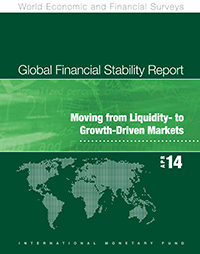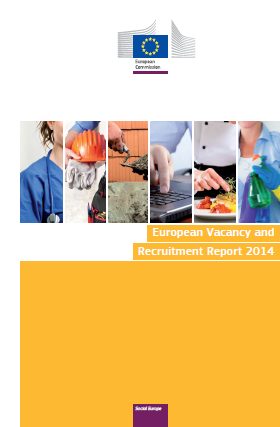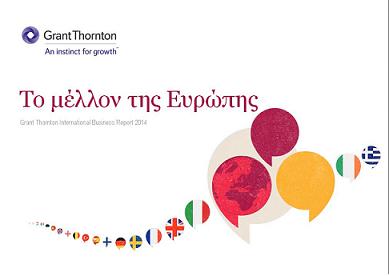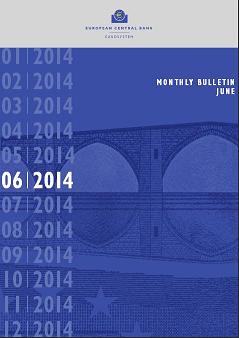International Monetary Fund (2014) Global Financial Stability Report – Moving from Liquidity- to Growth-Driven Markets, World Economic and Financial Surveys, Απρίλιος. The April 2014 Global Financial Stability Report (GFSR) assesses the challenging transitions that the global financial system is currently undergoing on the path to greater stability. Chapter 1 finds that these transitions are far from complete, and stability conditions are far from normal. For advanced and emerging market economies …Read More
European Vacancy and Recruitment Report 2014 & Statistical Annex
European Commission (2014) “European Vacancy and Recruitment Report 2014 & Statistical Annex“, Employment, Social Affairs and Inclusion Publications, 23 Ιουνίου. Low qualified workers encounter increasing difficulties to find a job, face lower job stability and are out-competed by medium-skilled workers even in elementary occupations. In contrast, job opportunities are growing in some high-skilled professions. These are the main findings of the European Vacancy and Recruitment Report 2014. The report …Read More
Το μέλλον της Ευρώπης
Grand Thornton (2014) “Το μέλλον της Ευρώπης“, Grant Thornton International Business Report 2014, Ιούνιος. Καλώς ήρθατε στην τρίτη έκδοση της έρευνας «Το μέλλον της Ευρώπης», η οποία αντλεί οικονομικά και επιχειρησιακά στοιχεία από την International Business Report (IBR) της Grant Thornton, με σκοπό την παροχή πληροφοριών σχετικά με την ανάκαμψη της Ευρώπης από την κρίση δημοσιονομικού χρέους. Οι οικονομικές προοπτικές στην Ευρώπη είναι πολύ πιο θετικές σε σχέση με …Read More
The long haul: debt sustainability analysis
Darvas, Z. & Hüttl, P. (2014) “The long haul: debt sustainability analysis“, Working Paper – European Macroeconomics, Bruegel Association, 18 Ιουνίου. This working paper details and updates the debt sustainability analysis of Darvas, Sapir and Wolff (2014) for Greece, Ireland and Portugal. The goal is not the calculation of a baseline scenario which best corresponds to our views, but to set-up a baseline scenario which broadly corresponds to official …Read More
Should the Euro Area Be Concerned About Deflation?
Illing, G. (2014) “Should the Euro Area Be Concerned About Deflation?“, INTERECONOMICS, Vol 49, No. 3· Μάιος/ Ιούνιος 2014. During the past few years, headline inflation (the change in the harmonised consumer price index, HCPI) in the euro area has fallen steadily, from three per cent at the end of 2011 to 0.7 per cent in April 2014. It is now far below the ECB’s target rate of inflation …Read More
The Euro Area Crisis: Politics Over Economics
Orphanides, A. (2014) “The Euro Area Crisis: Politics Over Economics“, MIT Sloan Research Paper No. 5091-14, 10 Iουνίου. This paper explores the dominant role of politics in decisions made by euro area governments during the crisis. Decisions that appear to have been driven by local political considerations to the detriment of the euro area as a whole are discussed. The domination of politics over economics has led to crisis …Read More
Monthly Bulletin
European Central Bank (2014) “Monthly Bulletin“, ECB Eurosystem, Ιούνιος. ECONOMIC AND MONETARY DEVELOPMENTS 1 THE EXTERNAL ENVIRONMENT OF THE EURO AREA The global economy remains on a gradual recovery path, although the growth momentum moderated somewhat in the first quarter of 2014 as a result of temporary factors mainly affecting the United States and China. As the adverse effects of these factors are gradually waning, global activity should gather …Read More
Lowflation: Should We Fear Stable Prices?
Kahn, R. (2014) “Lowflation: Should We Fear Stable Prices?“, Global Economics Monthly: June 2014, Council on Foreign Relations, 10 Ιουνίου. Overview: Bottom Line: Low inflation may be symptomatic of deeper problems, such as inadequate demand or central bank policy failures. The costs of low inflation could be high for European economies. There is a new Washington consensus, and it consists of a simple message: low inflation threatens the global …Read More
Undercutting the future? European research spending in times of fiscal consolidation
Veugelers, R. (2014) “Undercutting the future? European research spending in times of fiscal consolidation“, Bruegel Policy Contribution, Issue 2014/6, Ιούνιος. Are R&D budgets being smartly used to address growth? How is the crisis affecting public Research & Development budgets across the EU? The crisis seems to have widened the gap between EU countries in public R&I expenditure. Even though the EU budget serves as mechanism to somewhat ease the …Read More
An investigation into the procyclicality of risk-based initial margin models
Murphy, D., Vasios, M. & Vause, N. (2014) “An investigation into the procyclicality of risk-based initial margin models“, VoxEU Organisation, 06 Ιουνίου. Initial margin models are often procyclical, raising margin requirements at times of market stress, which can exacerbate that stress. This column proposes quantitative measures of procyclicality both over the cycle and over liquidity planning horizons. If market participants disclosed these procyclicality measures of their margin models, this …Read More








